Healing 1: Serving the Hungry with an Understanding Heart
“You, God, are my God, earnestly I seek you; I thirst for you, my whole being longs for you, in a dry and parched land where there is no water.” – Psalm 63:1
“That person lives in Shandaken. He shouldn’t even be here.”
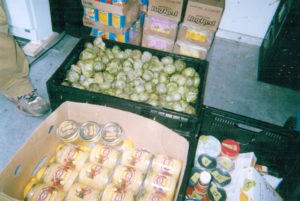
The pantry served shoppers, volunteers, hungry people. Volunteers fed everyone in the line. No exceptions.
Distributing groceries brought forgiveness and healing. Healing was an after thought of forgiveness.
For me, healing required some commitment and thought. Whether or not this was true, questions always arose:
“Am I ready to be healthy?”
“Can I get well if it’s scary?”
“Can I leave the old me aside if it’s necessary for healing?”
“Why am I going through this?”
“What is the meaning of it all?”
These questions could be painful. Healing can be hard on everyone.
The pantry line had massage therapists, Reiki practitioners, medical intuitives, and other healers.
As a healer, I know healing happens on several levels in our lives: physical, mental, spiritual, emotional, mythical. Both healing and getting well were special challenges because many of the people in the hallway, the pantry room, and out in the parking lot didn’t have health care.
While he had his office, Woodstock had Dr. Longmore. After his office closed, things were tough for many. As health care became scarce, everyone became personally involved with the differences between healing and getting well. For some, this was part of the spiritual journey.
Hunger often went beyond a plate of beans or a jar of peanut butter. That’s why food is essential to healing. That’s where homemade soup comes in.
Sharing food in the pantry helped people heal. Fresh vegetables, eggs, and Bread Alone bread offered a healing experience with abundance. As we fed the shoppers, we helped ourselves and each other.
In some cases, the shoppers became the volunteers or the volunteers joined the shoppers. Shoppers came to get food and found they could volunteer. Volunteering changed them. As a person distributed groceries, the volunteer made contact with another person and was able to smile.
Pantry experiences coaxed us out of our own problems. Offering a sense of community gives back so much more.
Do you want to be healed? Healing and feeding are connected.
Sooner or later, we all get sick. Finally, we die.
No one escapes. This truth is harder on hungry people who have no $$$ for health care.
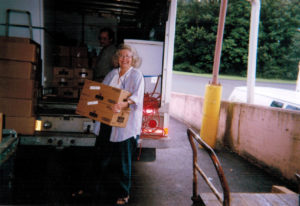
Hungry people are often blamed for their inability to deal with the situation. It’s as if it’s their fault for being down and out in Woodstock. If they lived right, they would be healthier, make more $$$ in their jobs.
If critics stopped and thought about how insufficient nutritious food, improper housing, and inadequate or nonexistent healthcare impacts a person, they might feel differently.
What did it matter that there were no jobs in the area and none of those that came open paid over $8.00 an hour?
Because they were down and out, they must be guilty of something.
They were negative thinkers, lacking faith, and basically lazy. Something.
They were gay, trans, promiscuous, alcoholics. Something.
They were freeloaders, irresponsible, flaky. Something.
Healing and getting well are two different things, acting in different ways. But, whether a person heals, gets well, or both, change happens.
“Do I want to heal?”
“Do I want to be well?”
“What if I come out of this experienced a different person?”
“What if it takes a long time?”
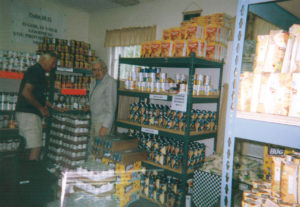
In the midst of this, the pantry offered some normalcy to the shattered lives of hungry people when they took pantry food home to wherever and whatever that was, fixed a meal, and served it to those in the household.
It was supper from the pantry.
Health issues pointed to the spiritual challenges which popped up on the path to the pantry. Healing was on the agenda. We all wanted to get well.
People getting well overcome symptoms. Getting well means doctor’s visits, therapy, pills, creams. These things were simply not an option for pantry shoppers because there was no money.
Symbolic healing occurred in the hallway on pantry days as shoppers and volunteers discussed their diabetes, PTSD, cancer, allergies.
Working and shopping in the pantry was therapy to volunteers and shoppers. These hallway conversations were cheaper than the physical and mental health services they had no money for anyway.
These conversations were essential because talking about a health issue promotes healing. Shared symptoms gave us all support, strength, validity.
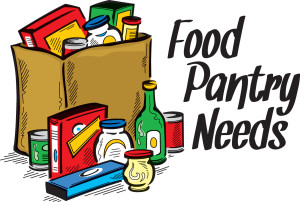
Everyone walking through the door to the pantry, whether a shopper or volunteer, was asked to leave the past behind. This experience was different for everyone. But, think about it, how can we move forward into our new lives if we never give anything up.
For some, giving up the past means letting go of things lost: the job, the home, maybe the family, self-esteem, the car, good health, money, insurance, the pet, anger, or drugs.
As the past disappears, the remaining spiritual baggage weighs less and less. Prejudices become fewer. Fears diminish. We heal!
Some things surrendered were physical, some mental, and some emotional. But, one thing is certain, whatever the category, the experiences all had a spiritual aspect.
Giving and receiving food brought everyone a little peace.
Everyone coming to the pantry heals somehow. The pantry community supports and approves hungry individuals as they climb back on the road to wellness and something offering normalcy.
Nobody just wakes up one day and says “I think I’ll go down to the local food pantry and volunteer.” People spending time in pantries all travel down the path. Healing has signposts along the way.
Some needed physical healing. Volunteers occasionally came to the pantry so ill that they were barely able to make it into the building. When this happened, I stationed them at the Items of Dignity table distributing toilet paper, shampoo, razors. They offered one roll of toilet paper and one other item to each shopper.
 Each week, Deanna slowly walked the two blocks to the pantry and then worked in the hallway a couple of hours while she gathered enough energy to return home.
Each week, Deanna slowly walked the two blocks to the pantry and then worked in the hallway a couple of hours while she gathered enough energy to return home.
“Don’t forget your roll of toilet paper, Judith. We’ve got some hand cream today. Can you use that or would you prefer tooth paste?”
When Deanna finally couldn’t work in the hallway anymore, Rachel gracefully sat at the Items of Dignity table helping shoppers choose their two items. Rachel lived in nearby Mt. Tremper. Her living situation seemed somewhat precarious because every few months she looked for a new place to live. She lived in her car a couple of times.
Thank you for reading this blog post. This is the first food pantry article on healing.
Please forward this article with your preferred social media network. Share it with a friend.
If you are interested in healing, please check out my other blog: www.reflexologyforthespirit.com.
Thanks again.
Thurman Greco
Woodstock, NY
PS: Many programs are now uploaded to YouTube. More are being added weekly. Enjoy!
![]()
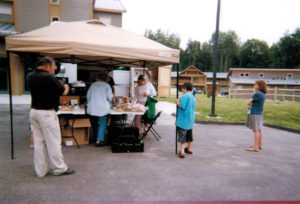

Paul, Duct Tape, and Homelessness
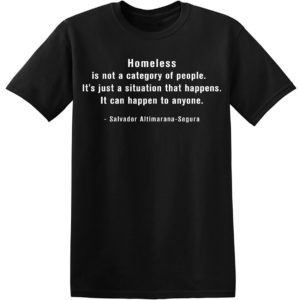
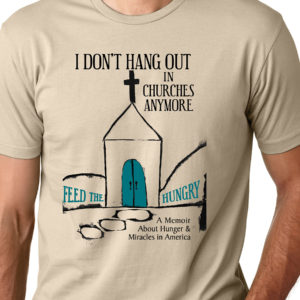
Paul has been on my mind all week.
One of my oldest friends, I knew him and worked with him when I worked and lived in Virginia – just outside Washington D.C.
Back then, we had Kelly Girls. Paul was my very best Kelly Girl. I could send him anywhere – well, not to the male chauvinist lawyer who would only pay for a cute legal secretary. But all the others loved his work.
He showed up on time for his assignments and he turned out a perfect work product. He was a bargain. Whatever he did, he made the client feel that Paul gave more than the money’s worth for every job done.
Everyone knew Paul was homeless. Nobody cared. He was the best typist out there. (This was before computers, you understand.) A quality work product counts for a lot when it comes time to pay the bill, after all.
So why have I been thinking about Paul all week? It was the Duct Tape that did it. My watch band broke and I need the watch. I drove over to Genter’s Jewelry Store in Saugerties and discovered a “for rent” sign where the “open” sign used to be. Mr. Genter always fixed everything . He didn’t care whether it was a watch band, a clock, a necklace.
He also sold silver and gold chains at bargain prices. And, he custom designed a coin for me. His work was exacting. Genter’s was my go-to destination for all things jewelry.
Genter’s is a statistic of the Coronavirus. With Mr. Genter gone, what was I going to do? I physically grieved when I saw the sign in the window.
I went straight for the Duct Tape. I now wear a watch held together with Duct Tape. I’m getting used to it, actually. My sense of urgency diminishes a little more each day.
I’m sure I’ll get along just fine with the Duct Tape. Paul Did.
Duct Tape adorned most of Paul’s clothes and anything else he used. Duct Tape held Paul’s shoes together. Duct Tape held the watch on Paul’s arm. Duct tape even kept Paul’s eyeglasses going. Finally, Duct Tape held Paul’s winter coat together.
So, following in Paul’s example, Duct Tape will keep my fitness watch going.
I rather like my new Duct Tape look. And, I like remembering Paul. He always made me smile. And, smiles these days are hard to come by.
Thanks Paul! You set a good example. This Duct Tape will work until I can find Mr. Genter, just as Duct Tape held your shoes together until you could find a newer used pair of shoes.
And, thank you for reading this article. Please forward it to your preferred social media network.
Thurman Greco
Woodstock, New York
PS: You can order one or more of the fancy T-shirts pictured in this post today at :
www.thurmangreco.com.
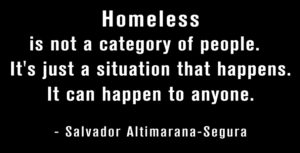
I also wrote about Paul in “No Fixed Address.”

Writing this Blog Post was Risky

Writing this blog post was risky. In the early days I worried about peoples’ opinions. I wrote my first blog entries with skeptics in mind. On some level it was important to me for pantry deniers to understand that there are, indeed, hungry people around us
One day I saw clearly that some people aren’t going to like me or my work. Nor are they going to believe what I write, no matter what I say. Once I realized that truth, I knew I’d been wasting energy on other people’s opinions.
I’m no longer interested in convincing anyone about what it means to go to bed hungry.
I’m okay with people saying anything about me because I know the chapters I write are true. The words I write make a difference in peoples’ lives.
This blog is about people creating better lives for themselves while not having enough to eat and lacking proper healthcare, housing.
This blog is about healing and creating new opportunities in one’s life. This blog is about people changing their lives – against all odds.
While I tell this story, I know some people won’t believe a word. It’s okay. I have my story and they have their story.
Food and sex and money are three words and issues more concerned with a person’s core beliefs, emotions, and spiritual attitudes than anything else.
These three words offer rules for everyone. We each have core beliefs around them with opinions about what is okay and what isn’t okay. We have attitudes about food, sex, and money based on what we were taught by family members and peers when we were children. We live our lives based on those experiences. Reduced to their lowest common denominator, these words – food, sex, and money – are the same. They touch core beliefs in ways going straight to the heart and soul.
The food pantry was all about food and money. The sex part was limited, but still there. Sex happened in the pantry hallway line when a shopper suffering with mental illness, a handsome young man who lived in another world, masturbated in the food line.
Our attitudes, opinions, feelings about feeding hungry people are or are not based on facts, statistics, or reality. Nor will facts, statistics, information, change attitudes.
Finally, we all have beliefs about who it’s okay to feed and who it’s not okay to feed. My beliefs are based on life experiences, facts, statistics. Their beliefs are based on the same. I may have taken classes, gone to therapy. And, they may have also.
Their reality about what is okay and my reality about what is okay differ.
In the food pantry hallway, we all looked at the same people and saw different things. This situation is proof positive we each create our own reality about hungry people. Nothing changes either reality. We each see hungry people through lenses shaped by separate life experiences. Hungry people don’t live in two realities.
As the lines got longer, we looked at people in the line. I saw hungry people and they didn’t. I interacted with people weekly who dumpster-dived to feed themselves as well as their children, parents, housemates. Occasionally I read articles about the ethics of dumpster diving. I didn’t think we could explore the ethics of allowing people go hungry because they couldn’t make enough money at their jobs to buy the food they needed to live and work.
People coming to a food pantry can take a three-day-supply of food home each week. The other four days, they’re on their own. That means they can buy more food if they have a SNAP card and if they can get to a store selling food. If they don’t have the money or a SNAP card, they get creative or go hungry. This involves panhandleing, borrowing money or food from friends, relatives, neighbors. They can steal, dumpster-dive, drop in at someone’s house at mealtime, and skip meals.
“Thurman is out of control over at the food pantry” described the local vicar because of the number of people shopping at the pantry and the amount of food they took home.
Thank you for reading this blog post. Please refer it to your favorite social media network.
Thurman Greco


Homelessness and Mental Illness: A Comment on Nicholas Kristoff’s Blog
I sent the following letter to Mr. Nicholas Kristoff in response to his Feb. 9, 2014, story in the New York Times about mentally ill inmates in jails.
Dear Mr. Kristoff:
While you were describing the plight of these incarcerated people, I submit to you that the people illustrated in your story are the lucky ones.
As a coordinator of a food pantry in Ulster County, New York, I interact with mentally ill people every time the pantry is open.
It’s difficult for a mentally ill person to navigate in our culture. Many of them end up homeless. On January 31, 2014, we were out in 9 degree weather doing a Point in Time Census of homeless people for HUD. We went under bridges, behind the mall in Kingston, to the cemetery, into abandoned buildings, etc.
Not everyone who is homeless is standing on the street with a sign and a cup. Every time I walk down a street now anywhere, I see inconspicuous and unnoticed homeless people. The sidewalks and streets of America have become one large ward for the mentally ill.
Homelessness accompanies a number of mental illnesses including schizophrenia and bipolar disorders. Mentally ill persons have a tendency to become chronically homeless. According to a HUD definition, a person who’s been homeless at least 4 times in the past 3 years or who has been homeless for more than 1 year, is considered homeless. It’s believed by MentalIllnessPolicy.org that there are over 250,000 seriously mentally ill homeless persons in our country.
The bottom line here is that many people are living on the streets coping not only with the problems of homelessness but also the mental illness they are afflicted with. While a seriously mentally ill person is trying to survive on the streets dealing with things like dumpster diving for food, s/he is also dealing with being robbed, beaten, etc. And, finally, s/he is not being treated for disease.
My conclusion: better to be in jail.
Peace and food for all.
Thurman Greco
Everytime I Walk Down a Street Now, Anywhere, I See, Inconspicuous and Unnoticed, Homeless People.
One young man was allowed to come into the pantry and take pretty much whatever he wanted when he shopped because he was so far in another world that we couldn’t communicate with him. This was a very sad situation for me. This young man, blonde, appeared to be in his late 20’s and had a beautiful face and demeanor. About the closest we could come to describing his hair was dreadlocks.
His mother also shopped at the pantry. Sometimes, when he was off his meds, he was just so far gone that we couldn’t talk with him. Somehow, she would get him back on the meds and he would be easier to communicate with. We went through these cycles with him. He would go along for several months on his medication and then quit taking it.
According to the National Institutes of Mental Health, 25 per cent of American adults suffer from a diagnosable mental disorder. These mental disorders are the leading cause of disability in our country according to the NIMH.
Research tells me that over 40% of the homeless population includes people with disabilities. My observations of shoppers in the pantry seems to confirm this statistic which I got from disabilityscoop.com.
The disabled homeless person appears to live below the poverty line.
That’s because those receiving SSI payments are really getting a very small amount of money each month. There’s just not enough money for a person to live on if s/he includes a rent payment. There’s also the employment factor for those with disabilities. There are fewer jobs and the jobs pay less. The old term “last hired, first fired” applies here.
The next post will include a copy of a letter to Nicholas Kristoff.
After that post, we’ll be returning to the pantry room with several posts about the pantry itself.
Thanks for reading this blogged book.
Peace and food for all.
Thurman Greco
Woodstock





